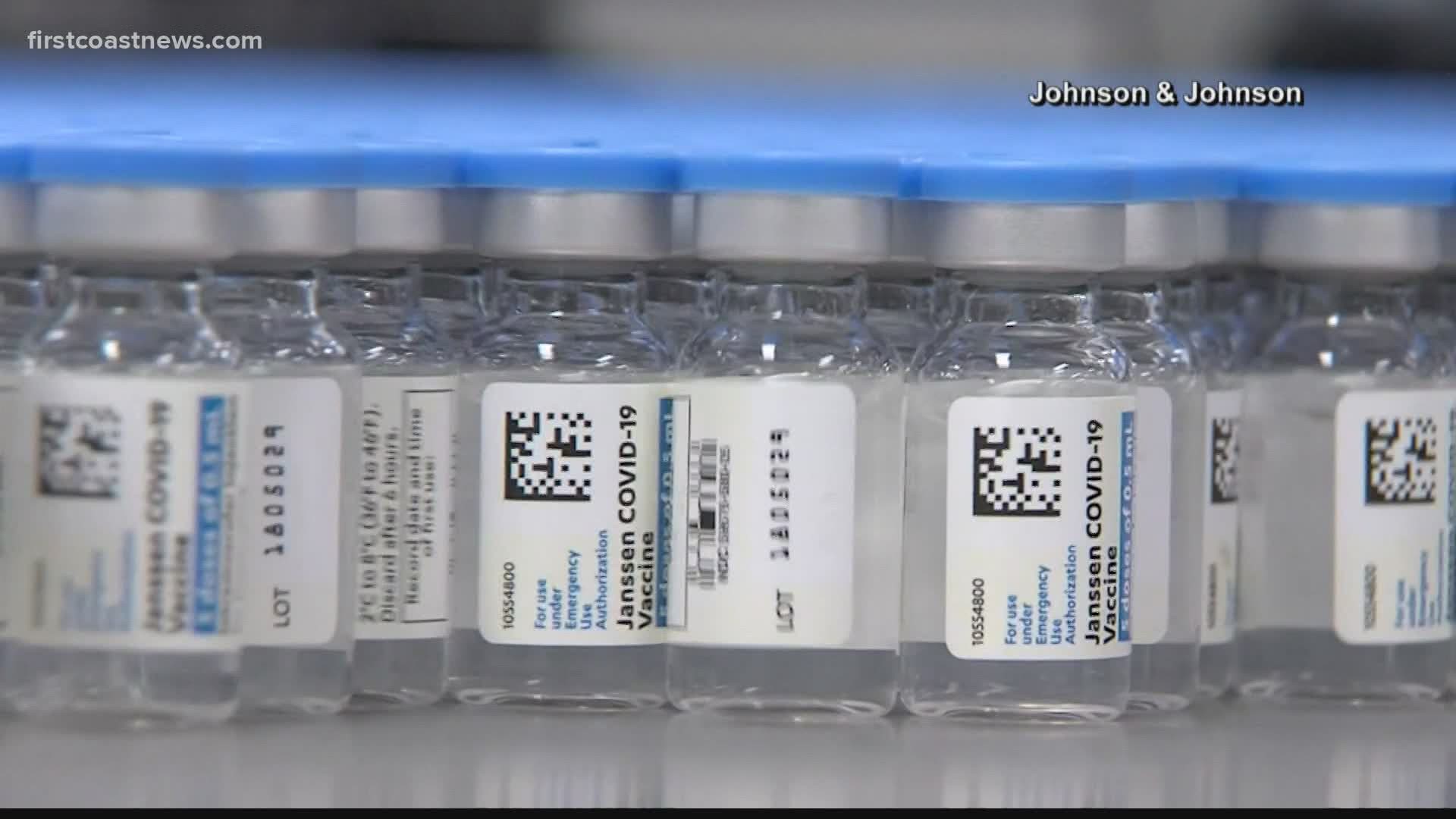JACKSONVILLE, Fla — The more than 100 million Americans who have been vaccinated are now anxiously waiting for data on how long their current vaccines will protect them.
Early data regarding booster shots and when we might need one are starting to come out.
UF Health’s Assistant Chief Medical Officer Dr. Chirag Patel says if more people get their vaccine, then we may be talking about a one-and-done deal.
“If we really can get enough people vaccinated, we could potentially say it will be one booster and that’ll be the end of it," Patel said.
Early data is showing the possibility of needing a booster within 12 months of receiving your final dose of the original vaccine.
“This hits close to home for me," Patel said. "I completed my second dose in early January.”
Pfizer's early data shows a booster might be needed in the 6 to 12 month period after the final dose. For people like Patel who were vaccinated in the first round, that could mean next months but Patel says it is unlikely a booster will be mass-produced by then.
It's not a matter of if, but when people will need one he says.
“It really depends on how many different variant types there are out there, how contagious they are, how much they spread, and how long it takes for people to get vaccinated so that we can achieve herd immunity," said Patel.
He says if we let down our guards and our masks, we will allow the virus to keep mutating and it’s unclear how many different strains our current vaccines protect us from.
Trials are underway right now and scientists are even throwing around ideas of how to administer the booster: along with a flu shot, by itself, or even as a patch or pill.
Pfizer CEO says people will “likely” need a booster dose within 12 months of getting fully vaccinated.
Moderna’s early trial data show a single shot of its vaccine given as a booster appears to be effective against certain variants. Trial participants received the booster six to eight months after their second dose.
I could not find much data on Johnson & Johnson boosters, but their CEO says the shots may be needed annually like flu shots. That's something Patel says we actually don't want.
“The reason why flu gets to spread as much as it does is because we don’t get enough people vaccinated every year," he explains. "There is still about 40 to 60 percent of the population depending on the year who don’t get the flu shot. What that does is it allows the flu virus to go from one person to another, infecting individuals, and then it mutates and we have an annual flu shot for that reason.”
With Pfizer receiving the emergency authorization to vaccinate 12 to 15-year-olds, we are one step closer to herd immunity. According to Census data, about a quarter of the American population is under 18 and the majority of those age groups have not yet been approved for a vaccine.

